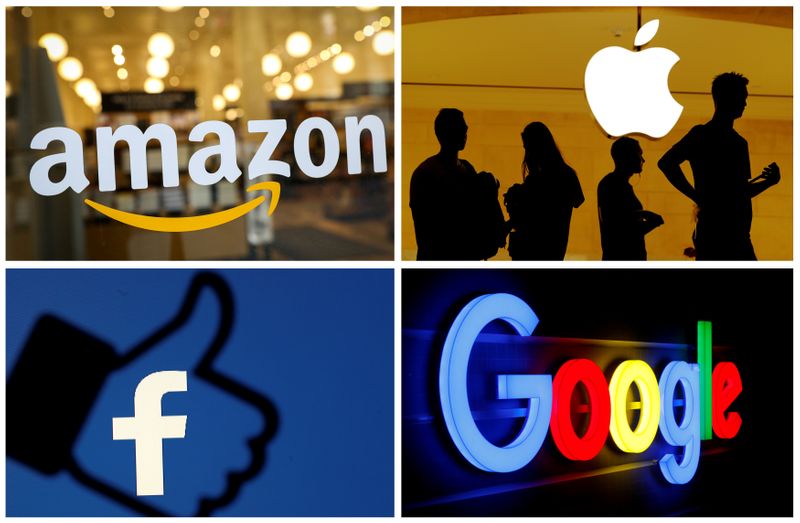This post was originally published on this site
https://i-invdn-com.akamaized.net/trkd-images/LYNXNPEG6T0XY_L.jpg
LONDON (Reuters) – Investment banks in London are trying to tempt more staff into the office, laying on free food, Friday night drinks and other perks to lure bankers back where they can pass skills to others — and compliance departments can keep a closer eye on them.
Mass remote-working has been largely successful for many financial firms, improving communications and sparing staff from long commutes during a near-global coronavirus lockdown. But some firms are keen to reunite teams after the hiatus.
In public, they tend to cite the importance of building teams, boosting morale and mentoring junior staff.
“Relationship building and developing a knowledge base are important for new associates and others, and that’s easier in the office,” said Ram Nayak, Deutsche Bank ‘s (DE:DBKGn) global head of fixed income and currencies.
Three banking sources said having staff on site also makes it easier to reduce compliance risks, and helps managers gauge individual output in the final quarter when bonuses are tallied.
Working from home could even bring new dangers: Britain’s FICC Financial Markets Standard Board this week published a best-practice guide to handling conduct risks such as trading errors, domestic violence, and substance or alcohol abuse.
As part of its return-to-work process, Goldman Sachs (N:GS) is offering to feed staff at the headquarters of its international business in London, where just a handful of nearby food outlets have reopened.
Around 40% of the 6,000 staff who work at its Plumtree Court building – which boasts onsite childcare and a medical centre – have returned to the office at some point since June, with 10-15% present on any given day, two sources said.
Staff have also been able to relax on its rooftop garden or take classes at its fitness centre, which reopened on Monday.
TRACKING TRADERS
UBS (S:UBSG) is treating its London-based traders to Friday night drinks to boost team spirit during its gradual return to the office, another two sources said.
But the steps are still small, and many bankers are likely to be working in their pyjamas for months more at least.
Around 70,000 of Barclays ‘ (L:BARC) 88,000 global workforce have worked from home during the pandemic and just 700 are timetabled to return to workplaces across Britain, India and the United States in July and August. The remainder will work remotely until at least end-September, a spokesman said.
Chief Executive Jes Staley, who had said in April he felt packing thousands of staff into city-centre offices could become “a thing of the past”, this week told reporters he wanted to see his staff back together.
A handful of HSBC’s (L:HSBA) investment bankers have returned to its UK headquarters, but no date has been set for the ‘first phase’ of a mass-return, two additional sources said.
The ‘first phase’ will see fewer than 20% of colleagues return to each office. In some buildings, maintaining social distancing means the returning number will be far less than 20%.
Deutsche’s Nayak said trading floors would return slowly. The bank has asked a small proportion of London-based staff to return in September after a first wave of employees returned this month, according to a July 14 staff memo.
UK state-backed NatWest Group (L:NWG) has told its 50,000-strong workforce the “vast majority” can work remotely until 2021. Lloyds Banking Group (L:LLOY) said it wanted staffers to return in the fourth quarter, assuming it was safe to do so.
PANDEMIC-PROOFING
Some banks are striving to ensure their offices are better protected against pandemics in the long-term.
“With people spending up to 90% of their time indoors, there’s an urgent need to re-engineer indoor spaces to create workplaces that are productive and safe,” said Liviu Tudor, founder of Genesis Property, who is advising banks including Societe Generale (PA:SOGN) on “immunising” their offices.
A SocGen spokeswoman described its enhanced measures as “progressive, agile and reversible” and said they could be adapted as the pandemic evolves.
Pandemic-proofing offices could cost up to 2% of a building’s total construction cost, Tudor estimated. This could include installing quarantine rooms, disinfectant UV lighting, upgraded air filtering systems, thermal scanners and even repainting walls with anti-microbial paint.
Employee union Unite, which represents thousands of bank staff, said on Wednesday it would intervene if it felt bosses could do more to ensure safety.
Canary Wharf Group (CWG), which manages Britain’s second financial hub to the east of the City, is providing more parking for cars and bikes for workers nervous about crowded transit.
Footfall in its shopping malls was “growing steadily” but it was “time for the rest of the businesses at Canary Wharf to come back”, said CWG Executive Chairman George Iacobescu.
But the Chartered Institute for Securities & Investment said on Wednesday only 25% of members expected to return to the office for the same number of working days as before.
“We’ve watched these mega dealing rooms grow – that doesn’t work with social distancing,” said one senior asset manager, forecasting occupancy of just 40% and 25% in his firm’s two offices. “The cult of the dealing room is probably dead.”

